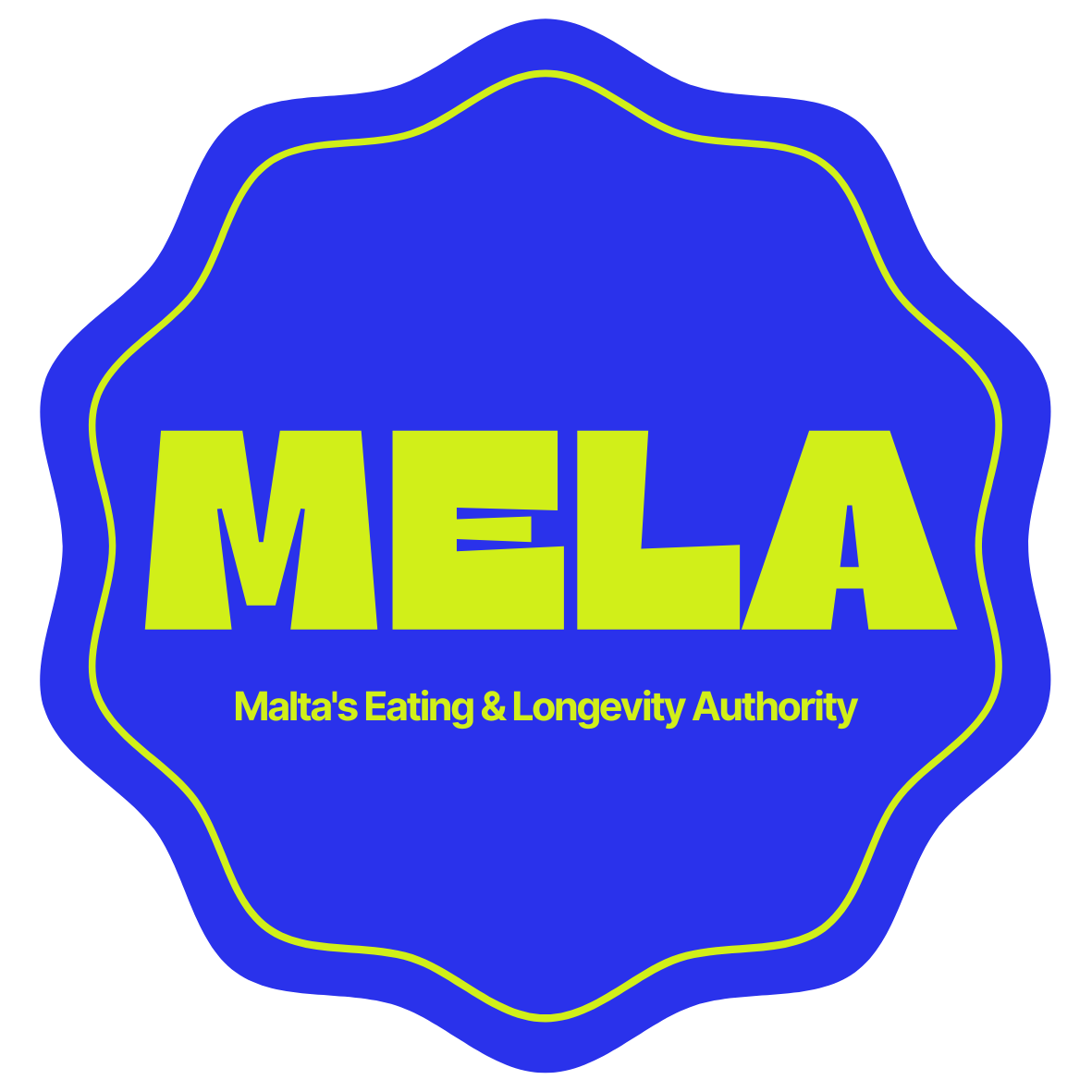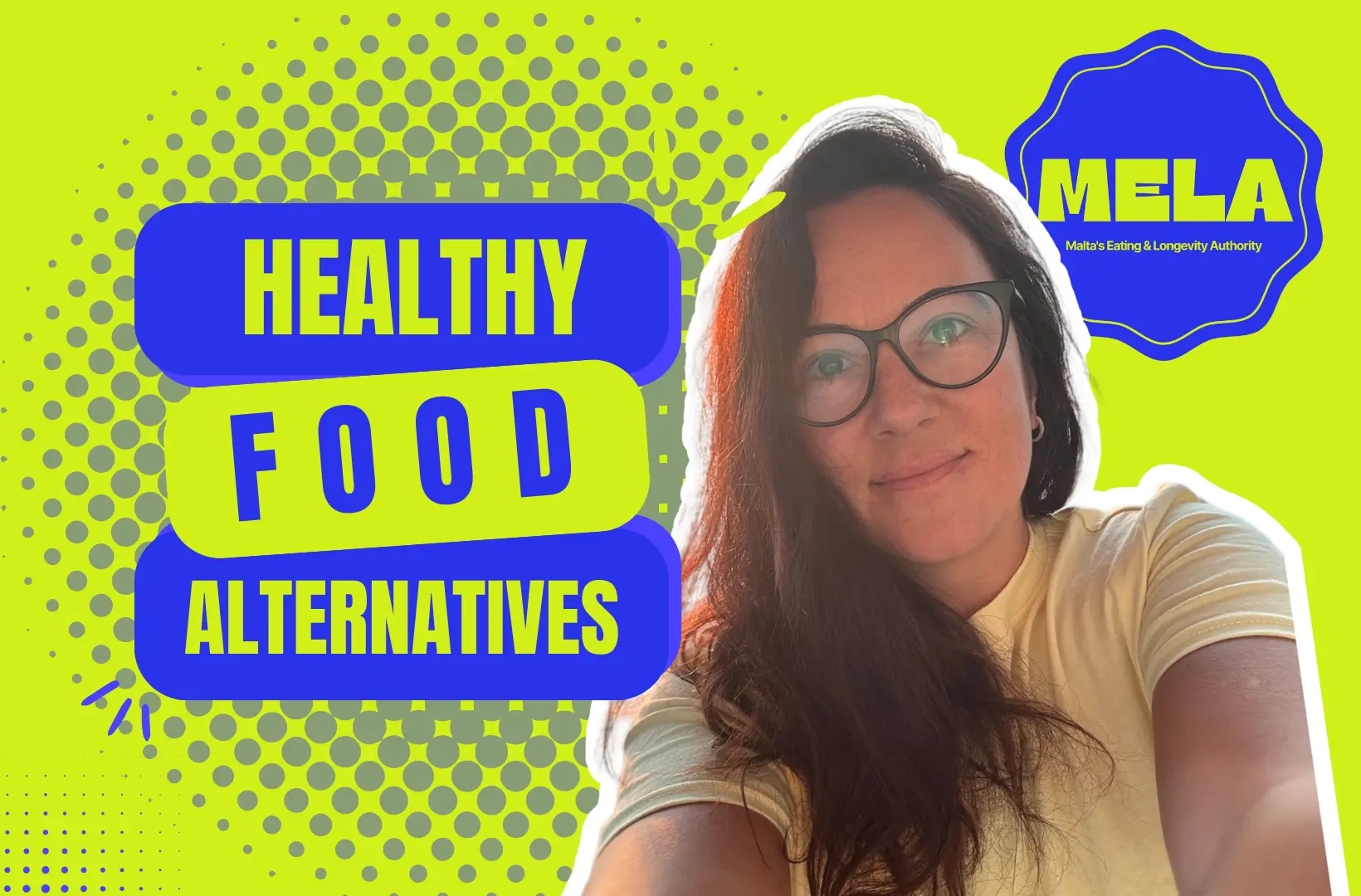September 2026 brought a heartbreaking health alert that sent shockwaves across Malta’s food safety landscape: Sainsbury’s hummus was recalled due to dangerous E.coli contamination. For locals, tourists, and health-conscious diners, discovering this news disrupted trust in ready-to-eat vegan and Mediterranean favorites, foods often seen as staples for a healthy lifestyle.
With Malta being heavily reliant on imported goods, this incident underscores an urgent call to prioritize food safety vigilance and rethink our dietary choices. Below, we’ll dive into the recall’s specifics, its wider implications, and give actionable tips to stay safe in future food-related events.
Malta Caught in EU Food Chain Turmoil: What Happened?
On September 2026, authorities issued a recall notice for Sainsbury’s JS Classic Houmous (315g, use-by date: Sept 13) and JS Lemon & Coriander Houmous (200g, use-by date: Sept 14) due to E.coli contamination concerns. The pathogen, linked to gastrointestinal illness and potentially life-threatening complications, particularly harmed risk groups like children, elderly individuals, and immunocompromised citizens.
Malta’s connectedness with EU food protocols meant these contaminated products circulated widely across Malta’s supermarkets, directly affecting local households, restaurants, and food businesses. This wasn’t just a Malta issue but part of a wider EU food safety trend during week 36, 2026, including contamination risks in fresh produce, cereals, and processed foods.
.png)
How Dangerous is E.coli in Foods Like Hummus?
E.coli is not a minor inconvenience, it’s a serious, often deadly pathogen, which affects the gastrointestinal system, sometimes leading to hemolytic uremic syndrome (HUS), kidney failure, or even death. Early symptoms include abdominal cramps, diarrhea (often bloody), vomiting, and fever.
Even for hummus, a common vegan staple thought to be healthy and safe, food contamination underscores gaps in manufacturing hygiene, temperature control, and supply chains. This specific incident in Malta proves that the journey from production to distribution in retail requires flawless oversight to ensure public safety.
You can read more on Malta’s official recall updates and consumer tips at Sainsbury’s recall notice.
Malta Responds: How Did Local Food Safety Authorities Handle It?
Malta’s food safety regulators acted quickly:
- Immediate Removal of affected hummus products from supermarket shelves.
- EU Food Surveillance Systems Coordination: Ensuring contaminated batches were cross-checked and flagged across neighboring markets.
- Consumer Warnings: Advising customers not to consume these products and facilitating returns/refunds.
The rapid reaction highlighted an effective acknowledgment of Malta’s reliance on EU food alert systems, but many criticized whether public awareness campaigns were sufficient to prevent wider panic and infections.
What Can You Do If You Were Potentially Exposed?
If you’ve consumed the affected hummus products and are experiencing symptoms, here’s what you need to know:
- Seek Immediate Medical Care: Don’t wait out symptoms, early intervention is crucial for E.coli-related complications like kidney damage.
- Document Your Illness: Keep receipts and product packaging if available; it can help with bacterial tracing and compensation claims.
- Avoid consuming similar ready-to-eat products until confirmed safe by Malta’s Food and Consumer Safety Authority.
Why Hummus Requires a Higher Standard of Oversight
Ready-to-eat food like hummus passes through multiple complex stages, from farming and ingredient procurement to blending, packaging, transportation, and storage. Without tight measures to enforce hygiene standards at every checkpoint, contamination becomes easier.
What does E.coli exposure stem from during hummus production? Pathways include:
- Unhygienic handling of chickpeas, tahini, lemon juice, or coriander.
- Improper washing or sorting of raw ingredients.
- Inadequate temperature controls during processing or storage.
Malta’s dependence on imported goods like Sainsbury’s hummus makes local food safety protocols essential to consumers’ protection. Disruptive incidents like this emphasize increased demand for traceability measures, such as blockchain integration in food supply chains that offer real-time origin and transportation tracking.
.png)
How to Take Precaution as a Health-Conscious Consumer in Malta
Living or vacationing in Malta doesn’t mean you’re powerless against food recalls. Follow these proactive tips for smarter, safer food habits.
1. Always Check Recall Notices
Browse credible websites or news outlets for recall reports and food safety alerts. Custom apps or EU-wide alert subscriptions can keep you ahead of the game.
2. Support Quality-Controlled Food Sources
Explore Malta’s local dining spots with high trust ratings under health-focused innovation protocols like MELA Index, which specifically rewards nutritional transparency. You can even explore restaurants in Mellieha with wellness-forward dining themes.
3. Make Homemade Hummus
Avoid the risk altogether by mastering a simple hummus recipe at home. Here’s a quick, healthy version:
Ingredients:
- 1 cup cooked chickpeas (cooled)
- 2 tbsp tahini
- Freshly squeezed juice of 1 lemon
- 1 garlic clove (minced)
- 2 tbsp extra virgin olive oil
- Salt to taste
- Cold water while blending
Preparation:
- Blend ingredients, adding water until smooth.
- Serve with fresh veggies or pita for a nutritious Mediterranean-inspired dish.
Bonus Tip: Try adding turmeric or parsley for added anti-inflammatory and detoxifying benefits.
Food Recalls: The Harsh Reality of Processed Food Dependency
Statistics show that processed and imported goods undergo 250% more risk of contamination incidents compared to locally sourced or farm-produced alternatives. Malta’s increasing dependence on processed ready-to-eats highlights the urgent need for fostering local production ecosystems, from small farm-to-plate culinary enterprises to local Mediterranean dips specialists.
Malta’s Way Forward: Striking a Balance Between Transparency and Trust
For both locals and tourists, developing your dining habits responsibly matters. Focus on ingredients that match Malta’s locally sourced produce movement for more reliable safety oversight. Restaurants like Mellieha’s Beachaven Roof Terrace actively work toward this philosophy, offering locally grown herbal ingredients and Mediterranean options.
- Diversify from imported ready-to-eats to community-supported agriculture (CSA) networks.
- Always double-check ingredient labeling, Malta’s Mediterranean conditions reward ingredients like fresh coriander and sun-cured olives locally.

Final Thoughts: Awareness Is the Best Defense Against Food Recalls
The Sainsbury’s hummus recall on Malta represents more than an isolated food safety blip, it’s an alarm for better transparency, faster alert diffusion systems, and stricter standards governing not just retail, but entire food ecosystems.
While enjoying Malta’s natural culinary delights, embracing open knowledge systems like the MELA platform could empower safer dining experiences. Always stay diligent, double-check compliance notices, and prioritize wellness-centric options available locally or among trusted health-conscious dining establishments nearby.
Read more about Malta’s interconnected food safety evolution.
Bookmark this guide, share with friends, and embrace local sourcing to stay ahead of emerging food recalls. Knowledge is truly power! 🍴
Conclusion
The shocking hummus recall of September 2026 serves as a grim reminder that even seemingly healthy, ready-to-eat products are not immune to contamination risks. As consumers, our vigilance is paramount, especially in Malta’s interconnected food chain heavily reliant on imports. This incident highlights the need for stricter food safety protocols and the importance of sourcing ingredients responsibly. By staying informed, prioritizing traceability, and considering alternatives like homemade hummus or trusted, quality-controlled food sources, we can actively safeguard our health and wellbeing.
For those dining in Malta, platforms like MELA AI offer an unparalleled advantage in navigating healthier dining options. The MELA Index spotlights restaurants that prioritize your health by offering nutrient-dense, high-quality meals, awarding them the prestigious MELA sticker. Whether you’re a health-conscious local or tourist exploring Maltese cuisine, MELA-approved restaurants ensure a balance between indulgence and wellness.
Let incidents like this inspire positive change in your food habits, embrace local sourcing, support trusted establishments, and make informed decisions. After all, safety and health always start with awareness and proactive choices. Discover MELA-approved restaurants and redefine your dining experiences today! 🌿
FAQ on Sainsbury’s Hummus Recall and Food Safety in Malta
What led to the Sainsbury’s hummus recall in September 2026?
In September 2026, Sainsbury’s issued a recall for their JS Classic Houmous (315g, use-by date: Sept 13) and JS Lemon & Coriander Houmous (200g, use-by date: Sept 14) due to E.coli contamination. This decision followed reports of contamination, which posed serious health risks, especially for vulnerable groups like children, the elderly, and those with compromised immune systems. Malta, heavily reliant on imported goods, was directly impacted as the contaminated products were distributed across local supermarkets. The incident was part of a broader EU food safety alert tracked during week 36, 2026, highlighting increased food contamination risks in processed foods, fresh produce, and cereals. Authorities acted swiftly to remove affected items, but the recall underlines the critical need for robust food safety measures in Malta’s food supply chain.
How does E.coli contamination in hummus occur?
E.coli contamination can happen at various stages of the food production process, especially for ready-to-eat products like hummus. Common pathways include unhygienic handling of ingredients like chickpeas, lemon juice, or tahini; insufficient washing of raw materials; and poor temperature control during processing and storage. Contamination is often exacerbated during packaging or transportation if proper hygiene standards aren’t followed. Since hummus does not undergo further cooking before consumption, contaminated products can directly expose consumers to harmful bacteria, causing gastrointestinal illness or severe complications like kidney failure. The recent recall serves as a wake-up call to ensure better oversight of the food supply chain.
What should I do if I consumed Sainsbury’s hummus from the recalled batches?
If you consumed Sainsbury’s JS Classic Houmous or JS Lemon & Coriander Houmous with the specified use-by dates and are experiencing symptoms such as abdominal cramps, diarrhea (possibly bloody), vomiting, or fever, seek immediate medical attention. Early intervention is essential to manage potential complications like hemolytic uremic syndrome (HUS). Retain any product packaging or purchase receipts to assist in tracing the source and filing compensation claims if needed. Even if you haven’t experienced symptoms, avoid consuming similar ready-to-eat products until authorities confirm their safety.
How did Malta’s food regulators respond to the recall?
Malta’s food safety authorities acted promptly to address the hummus recall. They coordinated with EU-wide food surveillance systems to identify affected products and ensure their swift removal from local supermarket shelves. Consumer warnings were issued, urging people to avoid the specific products and facilitating returns or refunds. While the response was efficient in isolating contaminated items, critics suggest that public awareness campaigns could have been more comprehensive to prevent panic and better inform consumers. This incident also highlights the importance of Malta’s connection to EU food safety protocols, ensuring timely responses to cross-border food safety concerns.
How can I stay updated on food recalls happening in Malta?
To stay informed about food recalls, regularly check updates from credible sources like Malta’s Food and Consumer Authority or EU-wide recall trackers. Platforms like Wikifarmer’s Food Recall Tracker provide timely information on food safety incidents. Additionally, subscribing to alert systems or using apps that monitor food recalls can ensure you’re immediately notified of potential risks. For local recommendations, follow trusted directories such as the MELA AI platform, which not only promotes food safety but also highlights health-conscious dining options across Malta and Gozo.
Does this recall suggest broader issues in Malta’s food supply chain?
Yes, the Sainsbury’s hummus recall underscores vulnerabilities in Malta’s reliance on imported goods and the risks associated with processed food supply chains. As Malta heavily depends on imports due to its size and limited agricultural capacity, such incidents expose gaps in hygiene practices and oversight during production, packaging, and transportation. To mitigate these risks, there’s a pressing need for stricter food safety measures, transparency in supply chains, and promotion of locally sourced products. The recall calls attention to these systemic issues that require long-term solutions for safer food consumption in Malta.
Why should health-conscious diners in Malta use MELA AI?
The MELA AI platform is a groundbreaking resource for health-conscious diners in Malta and Gozo. By scoring restaurants on their commitment to healthy dining, MELA provides a trusted directory for safe and nutritious eating experiences. Restaurants awarded the MELA sticker prioritize wellness through locally sourced ingredients, transparent menus, and adherence to food safety standards. Whether you’re a resident or a tourist, MELA AI ensures smarter dining choices while supporting Malta’s movement towards healthier, more sustainable food ecosystems. Stay ahead of food recall risks and discover safer options by exploring MELA-rated establishments.
How can I avoid future risks with ready-to-eat products like hummus?
To limit risks, consider making hummus at home where you control the ingredients and hygiene standards. Here’s a simple recipe:
- 1 cup cooked chickpeas
- 2 tbsp tahini
- Juice of 1 lemon
- 1 minced garlic clove
- 2 tbsp olive oil
- Salt to taste
- Water for desired consistency
Blend all ingredients until smooth and refrigerate immediately. Alternatively, choose fresh, locally made hummus from trusted sellers or MELA-approved establishments in Malta, which often implement stricter quality controls.
Which Malta restaurants promote safe dining and healthy eating?
Discovering restaurants that prioritize health and safety is easy with MELA AI’s directory. Look for venues awarded the MELA sticker, which guarantees adherence to nutritional transparency and hygiene excellence. Popular spots like Mellieha’s Beachaven Roof Terrace pride themselves on using locally grown, fresh ingredients to minimize contamination risks and maximize health benefits. Exploring MELA-approved establishments ensures a safer dining experience while embracing Malta’s Mediterranean culinary charm.
Why is locally sourced food safer than imported, processed products?
Locally sourced food reduces contamination risks by shortening the supply chain and ensuring fresher, minimally-handled ingredients. Unlike imported processed products that pass through multiple production and transportation stages, locally sourced food adheres to stricter hygiene and quality control. Restaurants and vendors that support local agriculture also benefit from greater traceability, allowing quicker identification and resolution of contamination issues. To enjoy such advantages, explore Malta’s local food scene using the MELA platform, which champions establishments offering safe, farm-to-table dining options.
Check out another article that you might like:
Discover Hackensack Meridian Health: A Path to Healthy Living You’ve Never Considered
About the Author
Violetta Bonenkamp, also known as MeanCEO, is an experienced startup founder with an impressive educational background including an MBA and four other higher education degrees. She has over 20 years of work experience across multiple countries, including 5 years as a solopreneur and serial entrepreneur. Throughout her startup experience she has applied for multiple startup grants at the EU level, in the Netherlands and Malta, and her startups received quite a few of those. She’s been living, studying and working in many countries around the globe and her extensive multicultural experience has influenced her immensely.
Violetta is a true multiple specialist who has built expertise in Linguistics, Education, Business Management, Blockchain, Entrepreneurship, Intellectual Property, Game Design, AI, SEO, Digital Marketing, cyber security and zero code automations. Her extensive educational journey includes a Master of Arts in Linguistics and Education, an Advanced Master in Linguistics from Belgium (2006-2007), an MBA from Blekinge Institute of Technology in Sweden (2006-2008), and an Erasmus Mundus joint program European Master of Higher Education from universities in Norway, Finland, and Portugal (2009).
She is the founder of Fe/male Switch, a startup game that encourages women to enter STEM fields, and also leads CADChain, and multiple other projects like the Directory of 1,000 Startup Cities with a proprietary MeanCEO Index that ranks cities for female entrepreneurs. Violetta created the “gamepreneurship” methodology, which forms the scientific basis of her startup game. She also builds a lot of SEO tools for startups. Her achievements include being named one of the top 100 women in Europe by EU Startups in 2022 and being nominated for Impact Person of the year at the Dutch Blockchain Week. She is an author with Sifted and a speaker at different Universities. Recently she published a book on Startup Idea Validation the right way: from zero to first customers and beyond, launched a Directory of 1,500+ websites for startups to list themselves in order to gain traction and build backlinks and is building MELA AI to help local restaurants in Malta get more visibility online.
For the past several years Violetta has been living between the Netherlands and Malta, while also regularly traveling to different destinations around the globe, usually due to her entrepreneurial activities. This has led her to start writing about different locations and amenities from the POV of an entrepreneur. Here’s her recent article about the best hotels in Italy to work from.



